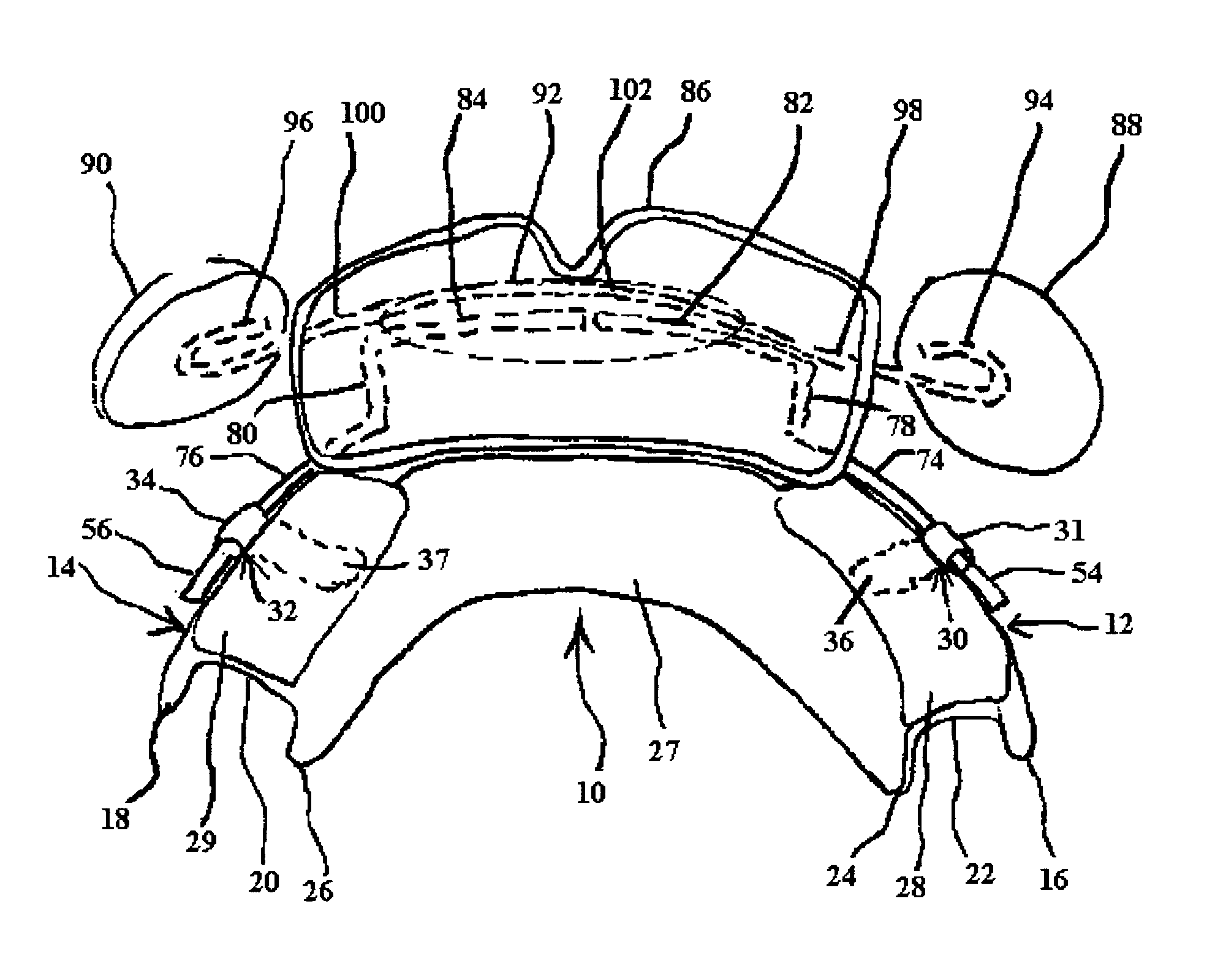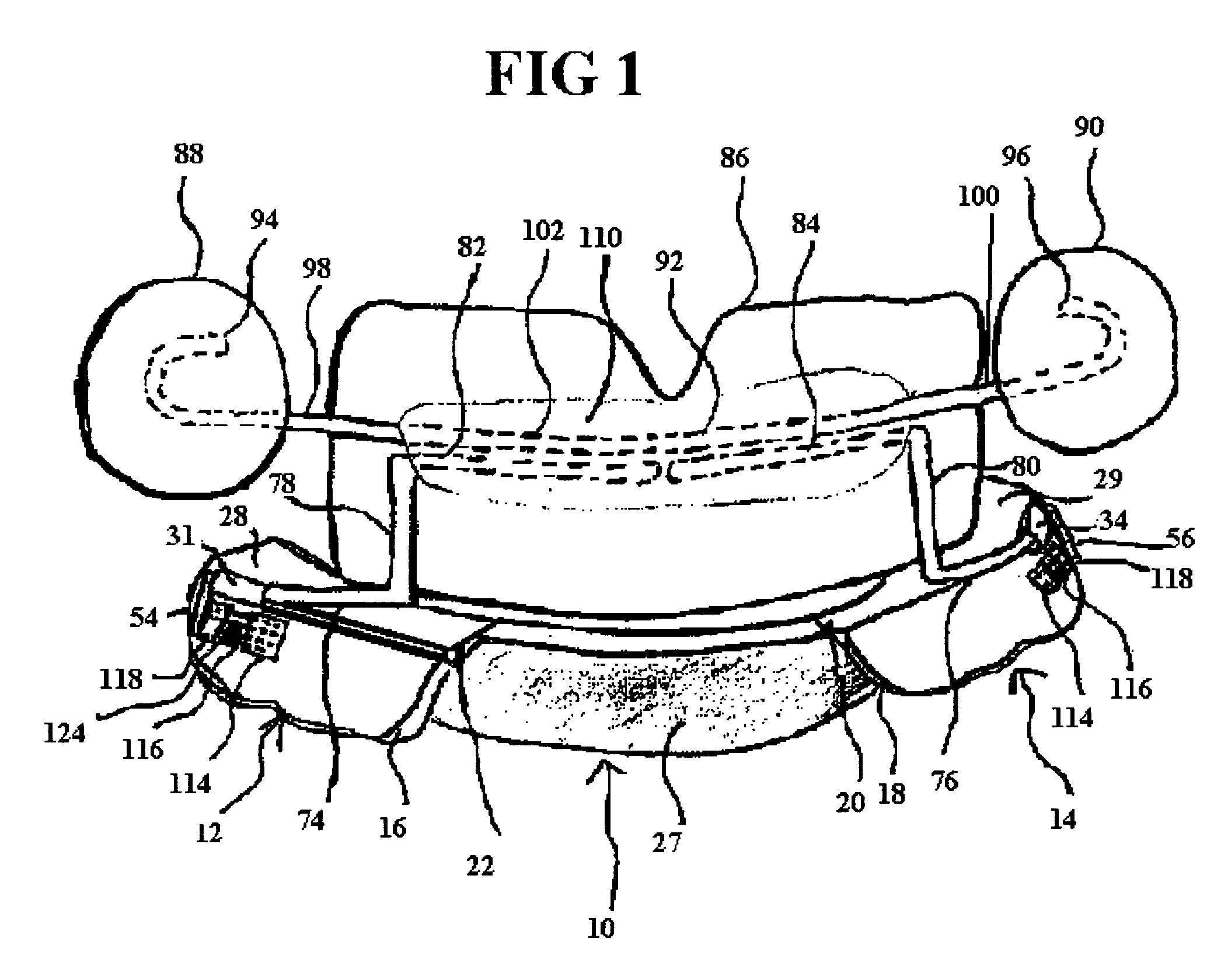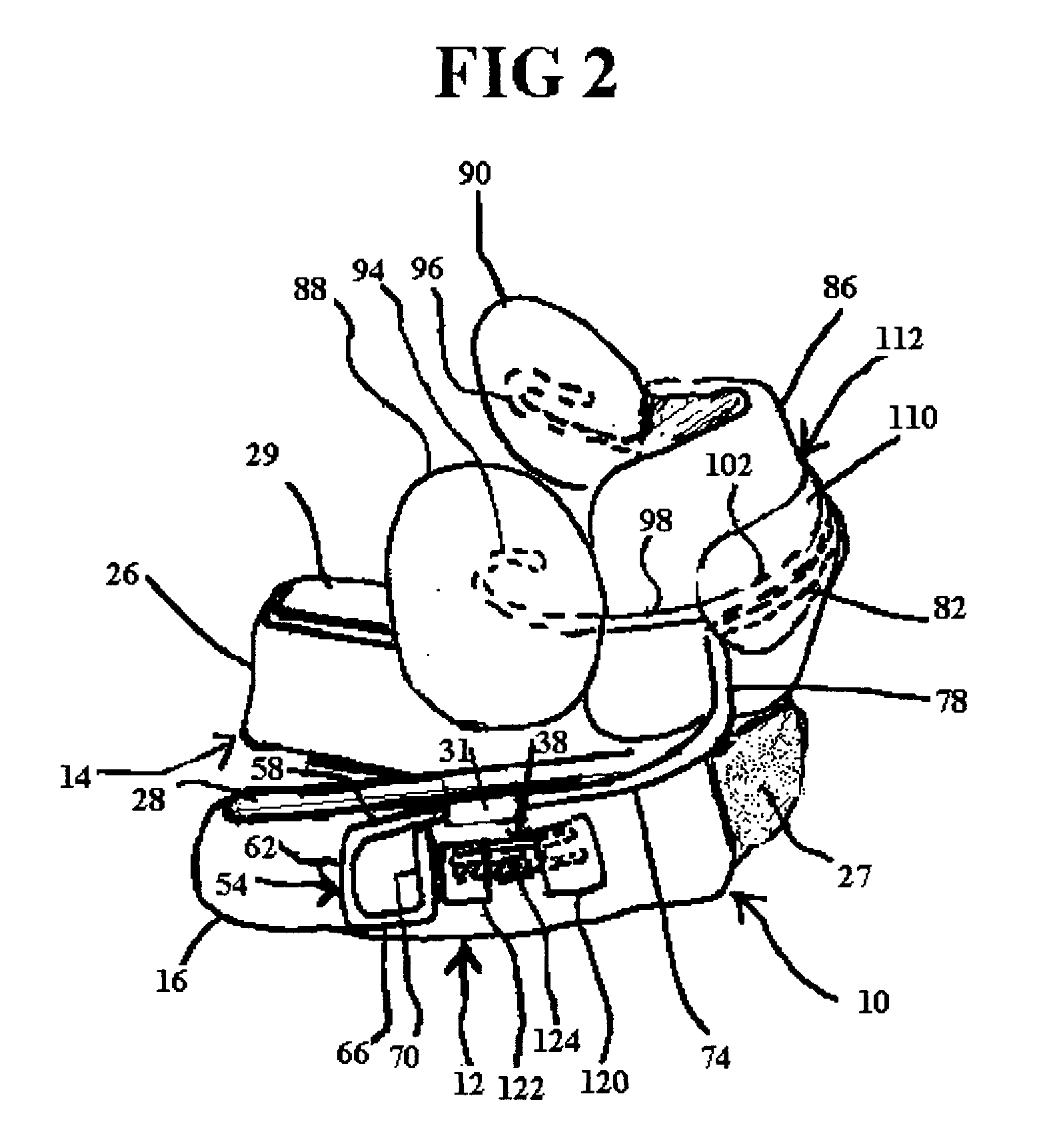Dental appliance for improving airflow through nasal-pharyngeal airway
a technology of nasal pharyngeal airway and dental appliance, which is applied in dental surgery, snoring prevention, tooth capping, etc., can solve the problems of reducing the resistance of airflow through the pharyngeal region, and achieve the effect of improving airflow for breathing, reducing the resistance of airflow through the pharyngeal region, and maintaining the free flow of air
- Summary
- Abstract
- Description
- Claims
- Application Information
AI Technical Summary
Benefits of technology
Problems solved by technology
Method used
Image
Examples
Embodiment Construction
. 1-4
[0051] A preferred embodiment of a nasal dilator and anti-snoring device according to the invention is illustrated and FIG. 1 (anterior view), FIG. 2 (lateral view), FIG. 3 (posterior view), and FIG. 4 (top view). The device has a base unit 10, which fits over the lower teeth. It is constructed of thermoplastic material, which is heat molded over a dental model.backslash. of the patient's teeth. In the preferred embodiment, the thermoplastic material used is 3 mm thick biocryl, available from Great Lakes Orthodontics of Tonawanda, N.Y. The biocryl is pressure molded over the dental casts of the lower teeth using a Biostar thermoplastic molding unit, available through Great Lakes Orthodontics.
[0052] The resultant molded form is cut in the inner side (lingual / tongue) of the dental arch approximately 3-5 mm below the upper margin of the gum line from the back of the posterior-most tooth on the right completely around the dental arch to the posterior-most tooth on the left. The mol...
PUM
 Login to View More
Login to View More Abstract
Description
Claims
Application Information
 Login to View More
Login to View More - R&D
- Intellectual Property
- Life Sciences
- Materials
- Tech Scout
- Unparalleled Data Quality
- Higher Quality Content
- 60% Fewer Hallucinations
Browse by: Latest US Patents, China's latest patents, Technical Efficacy Thesaurus, Application Domain, Technology Topic, Popular Technical Reports.
© 2025 PatSnap. All rights reserved.Legal|Privacy policy|Modern Slavery Act Transparency Statement|Sitemap|About US| Contact US: help@patsnap.com



